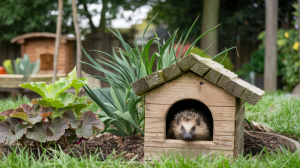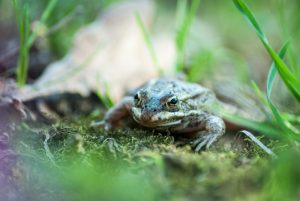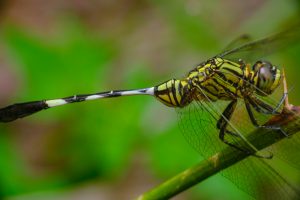- The Lifespan of Osteoclasts: How Long Do They Live?
- What is Monkfish average lifespan?
- What is Amberjack average lifespan?
- What is Sturgeon average lifespan?
- What is Barramundi average lifespan?
- What is Wahoo average lifespan?
- What is Shark average lifespan?
- What is Redfish average lifespan?
- What is Marlin average lifespan?
- What is Pompano average lifespan?
- What is Rainbow Trout average lifespan?
- What is Swordfish average lifespan?
- What is Anchovy average lifespan?
- What is Grouper average lifespan?
- What is Halibut average lifespan?
- What is Carp average lifespan?
- What is Pike average lifespan?
- What is Flounder average lifespan?
- What is Tilapia average lifespan?
- What is Sardine average lifespan?
What to Feed Your French Bulldog: Safe Foods, Risks, and Tips

French Bulldogs are beloved for their charming personalities and distinctive appearance. However, their unique breed characteristics and health predispositions require a tailored diet to ensure optimal health and well-being. This article will delve into the essential aspects of French Bulldog nutrition, including safe foods, risks to avoid, and tips for maintaining a healthy diet.
Understanding the Nutritional Needs of French Bulldogs
French Bulldogs have unique dietary needs due to their brachiocephalic (short-faced) structure and tendency toward certain health issues. Their diet must be balanced to provide essential nutrients. Proteins are crucial for muscle development and repair, while fats are important for energy, maintaining skin health, and hormone production. Carbohydrates contribute to energy and provide necessary fiber.
Moreover, it is imperative to consider the importance of vitamins and minerals in maintaining overall health and enhancing immune function. Compared to other breeds, French Bulldogs may have elevated requirements for specific nutrients, such as omega-3 fatty acids, which support skin and coat health. Maintaining their well-being and managing breed-specific health concerns can be helped by meeting their nutritional needs.

Safe Foods for French Bulldogs
While home-cooked meals can be a nutritious option, it’s crucial to consult with a veterinarian to ensure proper balance and avoid deficiencies. Here are some safe ingredients:
- Rice: A good source of carbohydrates for energy.
- Pasta: Can be served occasionally as a carbohydrate source.
- Yogurt: Provides probiotics for gut health.
- Fruits and Vegetables: Carrots, apples, and blueberries are excellent sources of vitamins and minerals.
- Proteins: Chicken, turkey, and lean beef are suitable protein sources.
Remember to cook foods thoroughly and avoid bones, which can be a choking hazard.
Risks and Foods to Avoid
When feeding your French Bulldog, avoid harmful human foods like chocolate, grapes, onions, garlic, and raisins, as these can be toxic. Keep your dog away from household items such as cleaning products, medications, and small objects that could be swallowed. Be aware of potential food allergies, with common culprits including chicken, beef, dairy, and wheat.
Additionally, monitor portion sizes and limit treats to prevent obesity, which can lead to health issues like joint problems and respiratory difficulties. By taking these precautions, you’ll help ensure your French Bulldog stays healthy and safe.
Choosing the Best Diet for Your French Bulldog
Choosing the best diet for your French Bulldog involves selecting high-quality commercial dog food that meets their specific needs. Look for formulas designed for small breeds or brachiocephalic dogs, as these are tailored to accommodate the unique dietary requirements of French Bulldogs. Ensure the food contains high-quality protein sources, which are essential for muscle maintenance and overall health.
Additionally, opt for options that are free of artificial additives and preservatives, as these can negatively impact your dog’s health. It’s also important to choose a diet appropriate for your French Bulldog’s age and life stage, whether they are a puppy, adult, or senior, to ensure they receive the right nutrients at each stage of their life.
Puppy Nutrition
French Bulldog puppies have specific nutritional needs for growth and development. Choose a puppy food formulated for small breeds to ensure adequate calcium and phosphorus levels.
Transitioning from Puppy Food to Adult Food
Gradually transition your French Bulldog from puppy food to adult food to avoid digestive upset. Mix the adult food with puppy food over a week-long period.
Tips for Maintaining a Healthy Diet
A balanced and nutritious diet is essential for maintaining your French Bulldog’s overall health and well-being. By following these tips, you can ensure your furry friend receives the optimal nutrition they need to thrive.
- Feed your French Bulldog at the same times each day to maintain a regular digestive schedule.
- Ensure your dog has access to fresh water at all times.
- Watch for signs of digestive issues, weight changes, or other health problems.
- Regular vet check-ups are essential for dietary advice and to monitor your French Bulldog’s health.

Feeding your French Bulldog a balanced and nutritious diet is key to their health and longevity. By understanding their specific nutritional needs, offering safe and appropriate foods, avoiding harmful items, and choosing high-quality commercial food, you can help ensure your Frenchie thrives. Tailor their diet to their individual needs and consult with your veterinarian for the best dietary practices.



